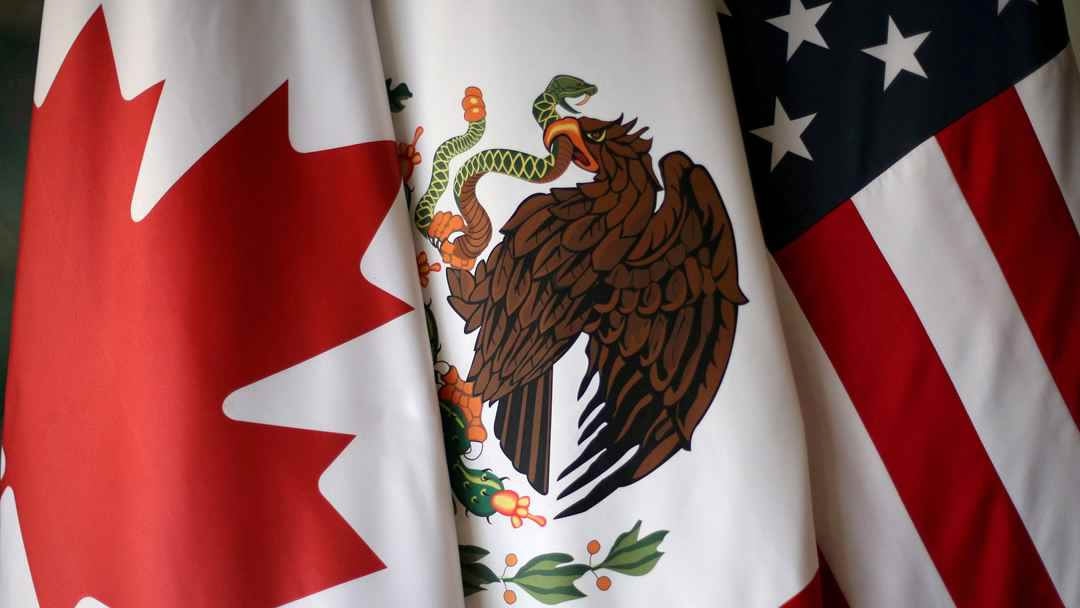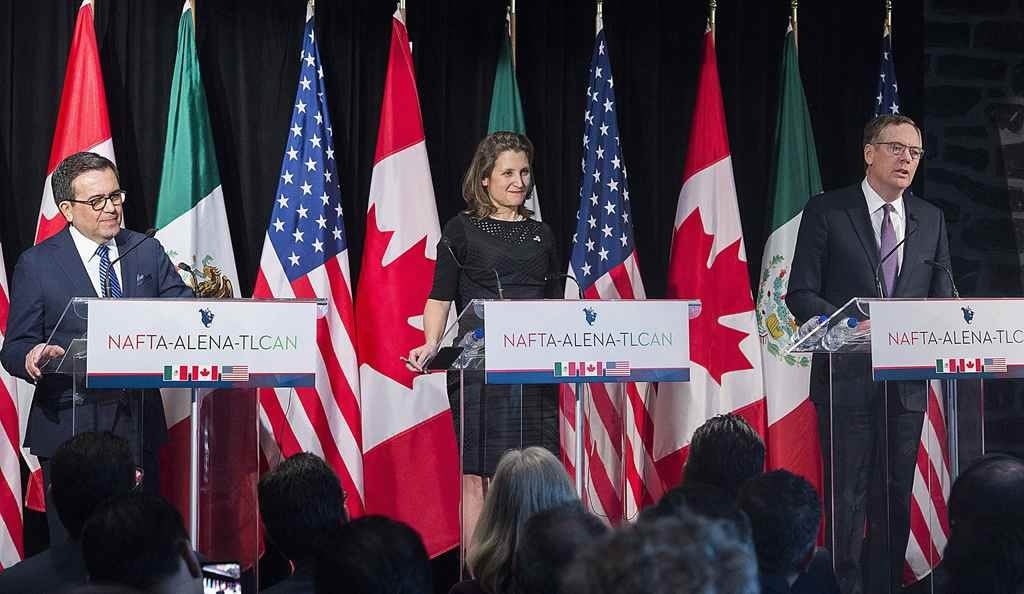
Business
20:55, 25-Feb-2018
NAFTA talks enter new round with little advance on major issues
CGTN

Member nations of the NAFTA trade deal were due to begin a new round of negotiations on Sunday, with a focus on less contentious issues before moving on to tougher areas.
“I think there’s going to be major progress on the technical issues and major obstacles on the critical issues,” Bosco de la Vega, head of Mexican farm lobby the National Agricultural Council, said of the talks running until March 5.
Negotiators from Mexico, Canada and the United States have made little advance on the most radical demands made by the administration of US President Donald Trump for the revamping of NAFTA.
They have, however, reported progress on technical details over six months.
Officials say the chief stumbling blocks laid by the White House look unlikely to be removed in the latest Mexico City round. They range from demands for major changes to automotive content rules and dispute resolution mechanisms, to imposing a clause that could automatically kill NAFTA after five years.

File photo:Canadian Foreign Affairs Minister Chrystia Freeland with US Trade Representative Robert Lighthizer, right, and Mexico's Secretary of Economy Ildefonso Guajardo Villarrea deliver statements to the media during the sixth round of negotiations for a new North American Free Trade Agreement in Montreal, January 29, 2018./VCG Photo
File photo:Canadian Foreign Affairs Minister Chrystia Freeland with US Trade Representative Robert Lighthizer, right, and Mexico's Secretary of Economy Ildefonso Guajardo Villarrea deliver statements to the media during the sixth round of negotiations for a new North American Free Trade Agreement in Montreal, January 29, 2018./VCG Photo
But if the three negotiating teams manage to iron out remaining differences on areas of broader consensus, officials hope the political leaders will turn their attention to brokering a compromise on the trickiest US proposals.
Once agreement is reached on technical chapters such as state-owned enterprises, barriers to trade and e-commerce, about 10 percent of the modernized accord would eventually be left over for political leaders to work out, de la Vega estimated.
Mexico hopes to build on the previous round of talks in Montreal, when Canada floated what it called “creative” solutions to the US demands.
“We will address and deepen the discussion on Canada’s proposals,” a Mexican official told Reuters, speaking on condition of anonymity due to the sensitivity of the matter.
Canada countered US demands for a higher auto content requirement with a proposal to include expenses for engineering, research and development and other high-value work in the total.
Under NAFTA, at least 62.5 percent of the net cost of a passenger car or light truck must originate in the region to avoid tariffs. Trump wants the threshold raised to 85 percent.
“You can’t have a successful negotiation if there’s no change to the rules of origin,” said the Mexican official, adding, “it won’t be 85 percent. We’re not sure what the number is going to be.”
Mexico’s Economy Minister Ildefonso Guajardo has said his negotiating team aims to present a proposal on rules of origin, though he has not provided details.
Any final agreement would need to be reached between Trump and auto sector bosses in the United States who oversee the NAFTA region, an industry source close to the process said.
Rules of origin are due to be discussed during the first three days of this round of talks. The North American auto industry has so far pushed back against Trump’s demands, arguing it would damage competitiveness and regional supply chains.
Source(s): Reuters

SITEMAP
Copyright © 2018 CGTN. Beijing ICP prepared NO.16065310-3
Copyright © 2018 CGTN. Beijing ICP prepared NO.16065310-3